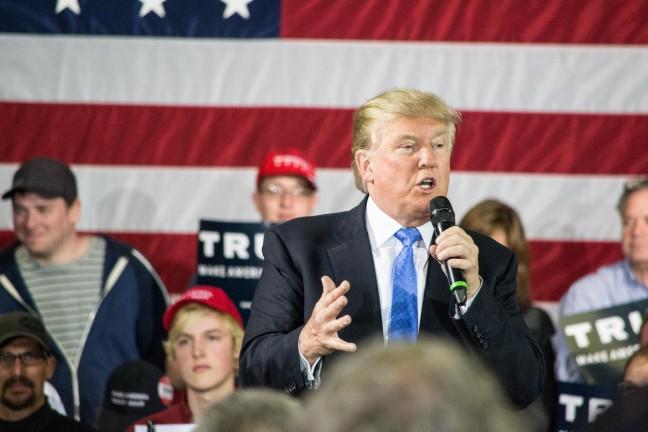Gov. Scott Walker and other Wisconsin Republicans have publicly expressed disapproval of President Donald Trump’s proposed tariffs on steel and aluminum, citing potential detrimental effects for both the national and local economy.
The specifics of the tariffs include a 25 percent tax on imported steel and a 10 percent tax on imported aluminum.
Despite debate within the administration and pushback from fellow GOP members, Trump signed an order earlier this month authorizing the import taxes. This decision was allegedly an effort to strengthen security and revitalize national industries that foreign trade has overpowered, according to The New York Times.
Walker released a statement disapproving the tariffs because of their perceived failure to accomplish the administration’s stated goals of supporting the job market.
“If the President wants to protect good-paying, family-supporting jobs in America, especially here in Wisconsin, then he should reconsider the administration’s position on these tariffs, particularly on ultra-thin aluminum,” Walker said. “As I described to U.S. Secretary of Commerce Wilbur Ross last year, there is not a market in America that can support the demand for ultra-thin aluminum for employers here in Wisconsin and across the country.”
Bemis Company, which is based in Neenah, Wisconsin and employs 5,000 Wisconsinites, also voiced concerns over the future availability of ultra-thin aluminum. There is only one U.S.-based producer of this material and it does not manufacture enough to support them, nor the rest of the national market, Walker said.
Walker also challenged the effectiveness of the highly contested tariffs when it comes to nationalizing trade.
Negatively impacted American companies can simply relocate their operations to countries like Canada — where they will not face import taxes — which would not protect American jobs and instead render the tariffs useless, Walker said.
Sen. Ron Johnson, R-Wisconsin, echoed Walker’s sentiments and urged Trump to change his decision because of its potential to harm Wisconsin.
“Please don’t do this,” Johnson said in a press release. “Target the real abuses and let’s hold harmless and let’s strengthen our relationship with our strong allies. It is better for America and American workers and Wisconsin workers. … In Wisconsin, we have a trade surplus with both Canada and Mexico.”
Steel and aluminum workers — some in uniform — joined Trump at the tariffs’ authorization signing, symbolizing support from American steel and aluminum production industries that have lobbied for government regulation like this for years, according to The New York Times.
Though the tariffs may strengthen industries on the production side of these metals, concerns for the indirect effect on the consumer have been called into question.
With industries in the automobile, construction and other sectors being forced to pay more for aluminum and steel, companies will logically need to charge more for their products in order to balance finances. University of Wisconsin sociology and law professor Joseph Conti, however, believes these price increases will be “negligible” for most goods.
Instead, it is predicted the industries that rely on steel and aluminum will suffer the brunt of the consequences, UW economics professor Noah Williams said.
“People have been talking about the direct impacts on consumers for paying higher prices for cars and canned goods, but the bigger impacts would be on steel and aluminum industries that we have in large concentrations here,” Williams said.
Wisconsin is home to many manufacturing and heavy machinery companies, which accounts for one of the state’s main products and exports, Williams said. Harley-Davidson, Schumacher Elevator Company and The Great Dane Pub and Brewing Company are all companies with locations in Madison that the tariffs will most likely impact because of their steel and aluminum use.
None of these companies were available to comment at the time.
These tariffs are indicative of the protectionist sentiments Trump expressed throughout his presidential campaign, Williams said. Despite internal conflict in his administration, the economic nationalist side finally won out, which could have major consequences for America’s relationship with foreign powers.
Conti believes Trump’s tariffs put the country at risk of an international trade war.
Conti, who studied the World Trade Organization International Trade Agreements, said Trump is undermining the rules — a move that could result in issues exceeding the realm of the economy.
“[Trump is] putting at risk not just economic, but political ties of major trading partners,” Conti said. “The risk here is the fragmentation of the Western Alliance at a time when we see China consolidating power under one ruler. Across the board, this is a blunt application of a tool that is going to end up causing more problems than is needed.”


